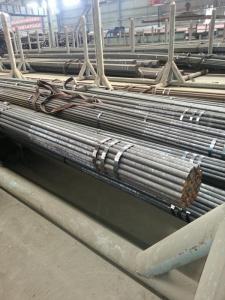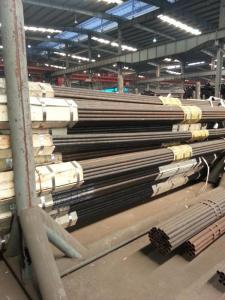Cold-drawn Seamless Low-carbon Steel Tubes For Heat Exchangers And Condensers
- Loading Port:
- China Main Port
- Payment Terms:
- TT or LC
- Min Order Qty:
- 20MT m.t.
- Supply Capability:
- 5000 Tons Per Month m.t./month
OKorder Service Pledge
OKorder Financial Service
You Might Also Like
Specifications of Cold-drawn Seamless Low-carbon Steel Tubes For Heat Exchangers And Condensers: Standard : ASTM A179/ A 179M /ASME SA-179/ SA -179M Main steel pipe grade : SA179 etc. Other grade is also negotiable. Chemical Composition(%) 、 Mechanical Propertise :
Usage/Applications: For manufacture wall panel,economizer,reheater,superheater and steam pipeline of boilers. Packaging & Delivery: Each bundles pipes will be bundled with 6-8 pcs steel strips and with shipping marks and 2 nylon strips 40-50 days delivery on china port upon receiving orinigal LC or prepayment. | |||||||||||||||||||||
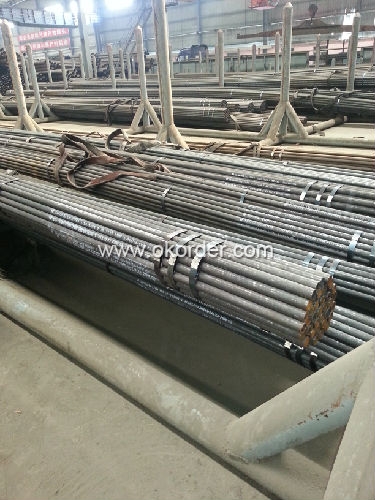
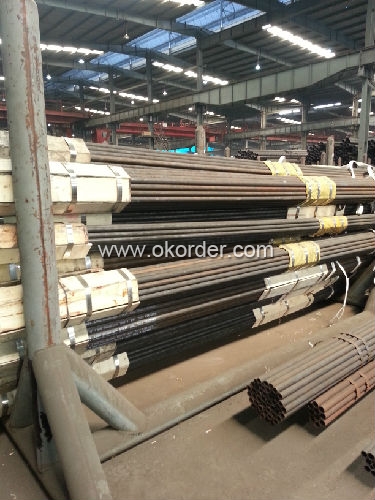
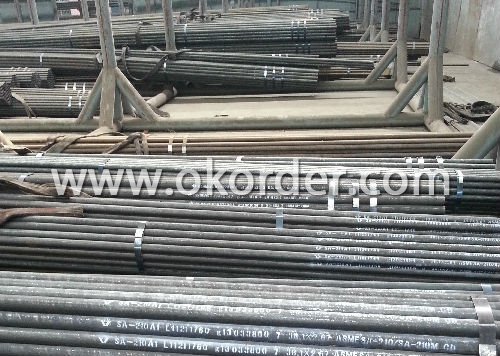
- Q:How are steel pipes used in stadium construction?
- Steel pipes are commonly used in stadium construction for various purposes such as structural support, plumbing systems, and the installation of lighting and audio equipment. They provide strength, durability, and versatility, making them ideal for ensuring the overall stability and functionality of the stadium.
- Q:Can steel pipes be used for marine applications?
- Yes, steel pipes can be used for marine applications. Steel pipes have high strength and durability, making them suitable for various marine environments and applications such as offshore drilling, shipbuilding, and underwater pipelines. The corrosion-resistant properties of steel pipes can be further enhanced by applying protective coatings or using corrosion-resistant alloys, ensuring their long-term performance in marine conditions.
- Q:How do you select the right size of steel pipe for a project?
- To select the right size of steel pipe for a project, you need to consider factors such as the intended application, flow rate, pressure requirements, and structural integrity. It is essential to consult industry standards and guidelines, conduct engineering calculations, and seek professional advice to determine the appropriate pipe size that ensures optimal performance and safety for your specific project.
- Q:What is the difference between steel pipes and fiberglass-reinforced pipes?
- The main difference between steel pipes and fiberglass-reinforced pipes lies in their composition and structural properties. Steel pipes are made primarily of iron and carbon, which provide high strength and durability. On the other hand, fiberglass-reinforced pipes consist of a composite material that combines a resin matrix with glass fibers, offering excellent corrosion resistance and high tensile strength. Additionally, steel pipes are heavier and require more maintenance, while fiberglass-reinforced pipes are lighter, easier to install, and have a longer lifespan.
- Q:Fastener type steel pipe scaffold steel pipe wall thickness
- The scaffold steel pipe shall be made of 48.3 * 3.6 steel tube. The maximum mass of each steel tube shall not be greater than 25.8kg.Fastener type steel pipe scaffold: for building construction and build, bear the load by the fastener and steel pipe and other scaffolding and support frame, collectively referred to as scaffolding. The fastener is a fastening piece which is fastened by bolts.
- Q:How are steel pipes used in the aerospace industry?
- Steel pipes are commonly used in the aerospace industry for various applications such as fuel lines, hydraulic systems, and structural components. These pipes provide strength, durability, and resistance to high pressure and extreme temperatures, making them ideal for delivering fluids and gases, supporting critical systems, and ensuring the structural integrity of aircraft and spacecraft.
- Q:How are steel pipes used in sewage treatment plants?
- Steel pipes are commonly used in sewage treatment plants to transport wastewater, sludge, and other fluids throughout the facility. They provide a durable and corrosion-resistant solution for the harsh environments found in these plants. Steel pipes are used for various purposes, such as conveying raw sewage, distributing treated water, and carrying sludge for disposal or further processing.
- Q:Are steel pipes suitable for underground gas lines?
- Yes, steel pipes are suitable for underground gas lines. Steel pipes are known for their strength and durability, making them a reliable choice for underground gas distribution. They have high resistance to external factors such as corrosion and impact, which is important for maintaining the integrity of the gas system. Additionally, steel pipes can withstand high pressure and temperature variations, ensuring the safe and efficient transportation of gas underground. However, it is important to note that proper installation techniques, such as corrosion protection measures, should be followed to ensure the longevity of the steel pipes and prevent any potential leaks or accidents.
- Q:How are steel pipes used in the agricultural sector?
- Steel pipes are commonly used in the agricultural sector for various purposes such as irrigation systems, drainage systems, and construction of structures like greenhouses and barns. They are durable, strong, and can withstand harsh weather conditions, making them ideal for these applications in the agricultural industry.
- Q:What is the average lifespan of steel pipes in different applications?
- The lifespan of steel pipes in different applications can vary due to various factors, such as the quality of the steel, the environment in which they are used, and the maintenance and care they receive. Water supply lines typically have steel pipes that can last around 50 to 70 years on average. These pipes are often made of high-quality steel and experience less corrosive environments. However, the presence of corrosive substances, water chemistry, and soil conditions can significantly impact their lifespan. For industrial applications like oil and gas pipelines, steel pipes generally have a lifespan ranging from 20 to 50 years. These pipes are exposed to aggressive environments with high temperatures, pressure, and corrosive substances. Extending their lifespan can be achieved through regular inspections, maintenance, and corrosion protection measures. In construction applications, steel pipes used for structural purposes can last an average of 50 to 100 years or longer. These pipes are designed to withstand heavy loads and are often safeguarded by coatings or insulation to prevent corrosion. It's important to understand that these are average lifespans, and individual pipes may have shorter or longer lifespans depending on specific conditions. Ensuring the longevity of steel pipes in different applications can be achieved through regular inspections, maintenance, and timely repairs or replacements when necessary.
1. Manufacturer Overview |
|
|---|---|
| Location | Wuxi, China |
| Year Established | 1991 |
| Annual Output Value | 300,000Tons |
| Main Markets | Europe; Southeast Asia; etc. |
| Company Certifications | API 5L;API 5CT;API Q1;ISO/TS29001 |
2. Manufacturer Certificates |
|
|---|---|
| a) Certification Name | |
| Range | |
| Reference | |
| Validity Period | |
3. Manufacturer Capability |
|
|---|---|
| a)Trade Capacity | |
| Nearest Port | Wuxi; Shanghai |
| Export Percentage | 41% - 50% |
| No.of Employees in Trade Department | 3900-4000 People |
| Language Spoken: | English; Chinese; Spanish |
| b)Factory Information | |
| Factory Size: | Above 450,000 square meters |
| No. of Production Lines | Above 10 |
| Contract Manufacturing | OEM Service Offered;Design Service Offered |
| Product Price Range | Average |
Send your message to us
Cold-drawn Seamless Low-carbon Steel Tubes For Heat Exchangers And Condensers
- Loading Port:
- China Main Port
- Payment Terms:
- TT or LC
- Min Order Qty:
- 20MT m.t.
- Supply Capability:
- 5000 Tons Per Month m.t./month
OKorder Service Pledge
OKorder Financial Service
Similar products
New products
Hot products
Related keywords
